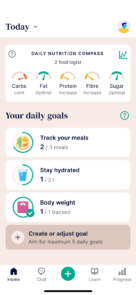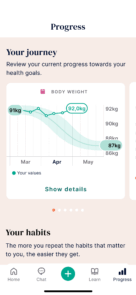
Can fasting lower cholesterol? What you need to know
High cholesterol increases your risk of heart disease and stroke, so it’s important to take steps to manage it. Fasting – or time-restricted eating – is sometimes promoted as a way to help. Emerging evidence suggests it may affect LDL cholesterol and triglyceride levels, but the results vary depending on the method. So, how does fasting lower cholesterol, and is it right for you?
With the right support, you can make more informed food choices, manage your weight, and take control of your cholesterol. If you have a BMI over 35 and high cholesterol, you may be eligible for NHS-funded support from Oviva.
Key Takeaways:
- Fasting may support lower cholesterol levels, but it depends on the approach and individual health needs.
- The evidence on fasting and cholesterol is mixed, and a balanced, sustainable way of eating is often more effective.
- Some methods like intermittent or alternate-day fasting may help, while others may actually raise cholesterol.
- Any cholesterol-lowering benefits are usually linked to weight loss, rather than fasting alone.
Can fasting lower cholesterol?
The evidence on fasting and cholesterol is mixed. While fasting may help lower cholesterol in some people, the effects depend on the type of fasting and your individual health needs.
Some studies suggest fasting can reduce:
- Total cholesterol – the overall amount of cholesterol in your blood
- Triglyceride levels – another type of blood fat linked to heart risk
Total cholesterol includes both HDL (‘good’) cholesterol and non-HDL cholesterol.
- HDL helps remove cholesterol from the bloodstream
- Non-HDL can raise your risk of heart disease by building up in the arteries
Triglycerides, another type of blood fat, can also raise heart disease risk, especially when combined with high cholesterol.
However, other research has shown different outcomes – one study on 24-hour water fasts found an increase in cholesterol levels after fasting.
Many of these studies have limitations, and more research is needed to fully understand the link between fasting and cholesterol.

Weight loss and metabolic shifts
Losing weight has been shown to reduce cholesterol levels, and many of the cholesterol-lowering benefits of fasting are actually linked to weight loss, not fasting itself.
When trying to lower your cholesterol, focusing on weight loss is often more effective than fasting alone—though some people find the structure of fasting helpful.
Fasting may also trigger a metabolic shift, where the body starts burning fat for energy instead of using glucose.
As this happens, the body produces ketones – chemicals released when stored fat is broken down. This may help reduce stored fat and support improved body composition in people living with excess weight.
Types of fasting and their effects on cholesterol
There’s no one-size-fits-all answer to whether fasting helps lower cholesterol. The effects can vary depending on the type of fasting and your individual health.
Exploring the evidence behind different approaches can help you understand what may (or may not) work for you.
Intermittent fasting
Intermittent fasting (IF) involves cycling between scheduled periods of eating and fasting.
Two of the most popular methods are:
- 5:2 diet: You eat a regular, balanced diet on five days of the week, and on two days, reduce your calorie intake to around 500 or 600.
- 16:8 plan: You eat all your meals within eight hours and fast for 16. By limiting your eating to a small window, you may eat less overall and lose weight.

What does the evidence say?
A small study looked at intermittent fasting (IF), where people fasted for 12 hours a day, three times a week. It found:
- Higher levels of ‘good’ HDL cholesterol
- Improved fat levels in the blood (lipid profile)
This matters because HDL cholesterol helps remove extra cholesterol from your blood, which may lower your risk of heart problems.
However, the study had a small sample size of just 40 participants, so we can’t be certain the same results would apply to everyone. More research is needed to confirm these findings.
Another study focused on time-restricted eating using the 16:8 method – where eating is limited to an 8-hour window each day.
This study found a link between the 16:8 approach and a 91% increased risk of death from heart and circulation-related conditions.
But it’s important to look at the full picture:
- The study has not been peer-reviewed, meaning it hasn’t been checked by other experts in the field.
- It relied heavily on self-reported eating habits, which can often be inaccurate.
- It couldn’t prove that time-restricted eating caused the increased risk, or whether people at higher risk were more likely to try this method.
This means we should interpret these findings with caution.
Alternate-day fasting
Alternate-day fasting is a way of eating where you switch between fasting days and non-fasting days.
- On non-fasting days, people eat a balanced, healthy diet.
- On fasting days, people either eat very few calories or none at all.

What I love about Oviva is that I can eat what I want — it was a completely new experience for me not to count calories. I lost 5 kg in the first 12 weeks, and my blood pressure normalised.
What does the evidence say?
A study looking at alternate-day fasting for up to 12 weeks found some notable effects:
- Total cholesterol dropped by 10% to 21%
- Triglyceride levels (a type of blood fat) dropped by up to 42%
- Participants also lost up to 7% of their body weight
This weight loss likely explains the improvements in cholesterol and triglyceride levels.
Alternate-day fasting can help reduce your overall calorie intake across the week, which may lead to weight loss for some people.
However, having days with very few or no calories is quite extreme, and many people find it hard to maintain. Building healthy habits you can stick to is much more likely to lead to long-term weight loss.

24-hour water-only fasts
A 24-hour water-only fast means only drinking water and consuming no calories for a full day. It’s not recommended to fast for longer than 24 hours without medical supervision.
What does the evidence say?
Water-only fasts are not suitable for managing cholesterol in the long term.
While evidence is limited, one study found that 24-hour water fasts can temporarily raise cholesterol levels. This included increases in both:
- HDL cholesterol
- Non-HDL cholesterol
This effect is likely due to fat being mobilised during fasting and is thought to be short-term.
Longer-term fasting
Longer-term fasting includes fasts that last more than 24 hours, such as week-long fasts. These fasts can be risky without medical supervision and may lead to serious health problems.
What does the evidence say?
One small study looked at the effects of a seven-day fast and found:
- An increase in LDL cholesterol, which is linked to a higher risk of heart problems
- An increase in total cholesterol
However, the study had a very small sample size of just 10 participants.
It also focused on people who were healthy and not living with obesity, so more research is needed before we can apply these findings more widely.
Why fasting might affect cholesterol
Weight loss is often the main reason cholesterol levels improve with fasting. Why?
- Losing around 10% of your body weight can help reduce both cholesterol and triglyceride levels.
- Weight loss can improve liver function, so it removes cholesterol from your blood more effectively.
- Fasting may help you reduce your overall calorie intake, which can contribute to gradual weight loss over time.
Fasting and weight loss may also reduce symptoms of insulin resistance, which in turn can lower liver fat and improve how the body processes cholesterol.
Plus, after a period of fasting, your body may begin to use stored fat for energy instead of glucose, which can help lower blood cholesterol.

Pros and cons of fasting for cholesterol
The relationship between fasting and cholesterol is complex, so it’s important to be aware of the pros and cons.
Potential benefits:
- May help lower LDL cholesterol and triglycerides in some people.
- Can support weight loss by creating a calorie deficit, which may help your liver process cholesterol more effectively.
- Improved heart health markers and reduced risks in some fasting studies.
- May support better blood glucose control, helping to avoid spikes, crashes and overeating — which can contribute to weight gain and raised cholesterol.
Limitations and cautions:
- Fasting isn’t a long-term replacement for a healthy and balanced diet.
- The effects of fasting for cholesterol vary from person to person.
- Some fasting methods have little evidence for reducing cholesterol. In some cases, there is evidence that cholesterol may even increase.
- Fasting isn’t suitable for people with certain health conditions, including eating disorders. If you have diabetes, you should only fast with professional medical support.
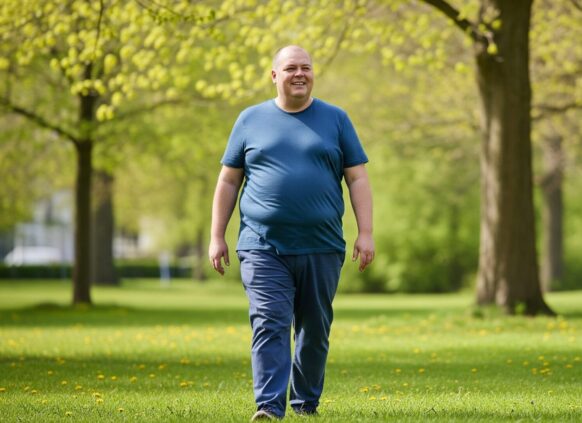
Is fasting right for you?
While fasting may help to:
- Reduce calories
- Lose weight
- Lower cholesterol levels
You might not get the results you want – fasting can be very difficult to stick to, and may be triggering if you have a relationship with disordered eating or food noise.
If you do choose to fast:
- Eat well during non-fasting periods
- Get essential nutrients
- Minimise sugar and saturated fat
- Include foods that help lower cholesterol like fibre-rich veggies and fatty fish
Our dietitians and healthcare experts at Oviva recommend a more sustainable approach. Learning how to eat well and build lasting habits over time has been shown to improve cholesterol levels and support healthy weight in the long term.
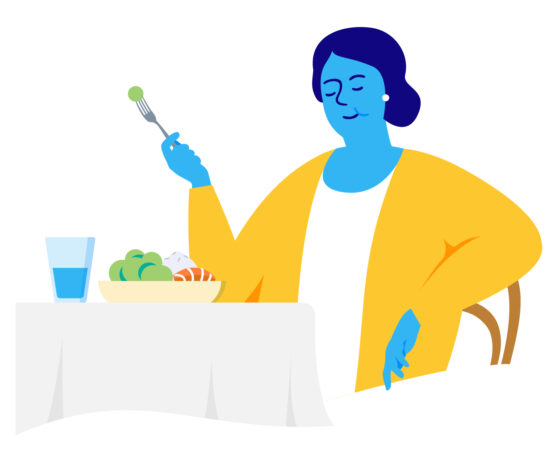
Lose weight to lower your cholesterol with Oviva
Managing your cholesterol and weight is not just about short-term fixes—it’s about creating lasting change.
With Oviva, we’ll help you make sustainable, long-term improvements with a programme designed to fit your life, completely covered by the NHS.
Our expert team of dietitians, doctors, and psychologists will work with you to build a personalised action plan that focuses on what works for you.
With Oviva, you get:
- Tailored weight loss plans with dietitian-led support
- Flexible tracking tools via the Oviva app to log meals, monitor progress, and stay motivated
- Prescription weight loss medication (like Wegovy), available if you’re eligible, to accelerate results
- Ongoing support and expert guidance to help you build healthy habits you can maintain for life
Ready to achieve real, lasting change with Oviva’s science-backed approach?


